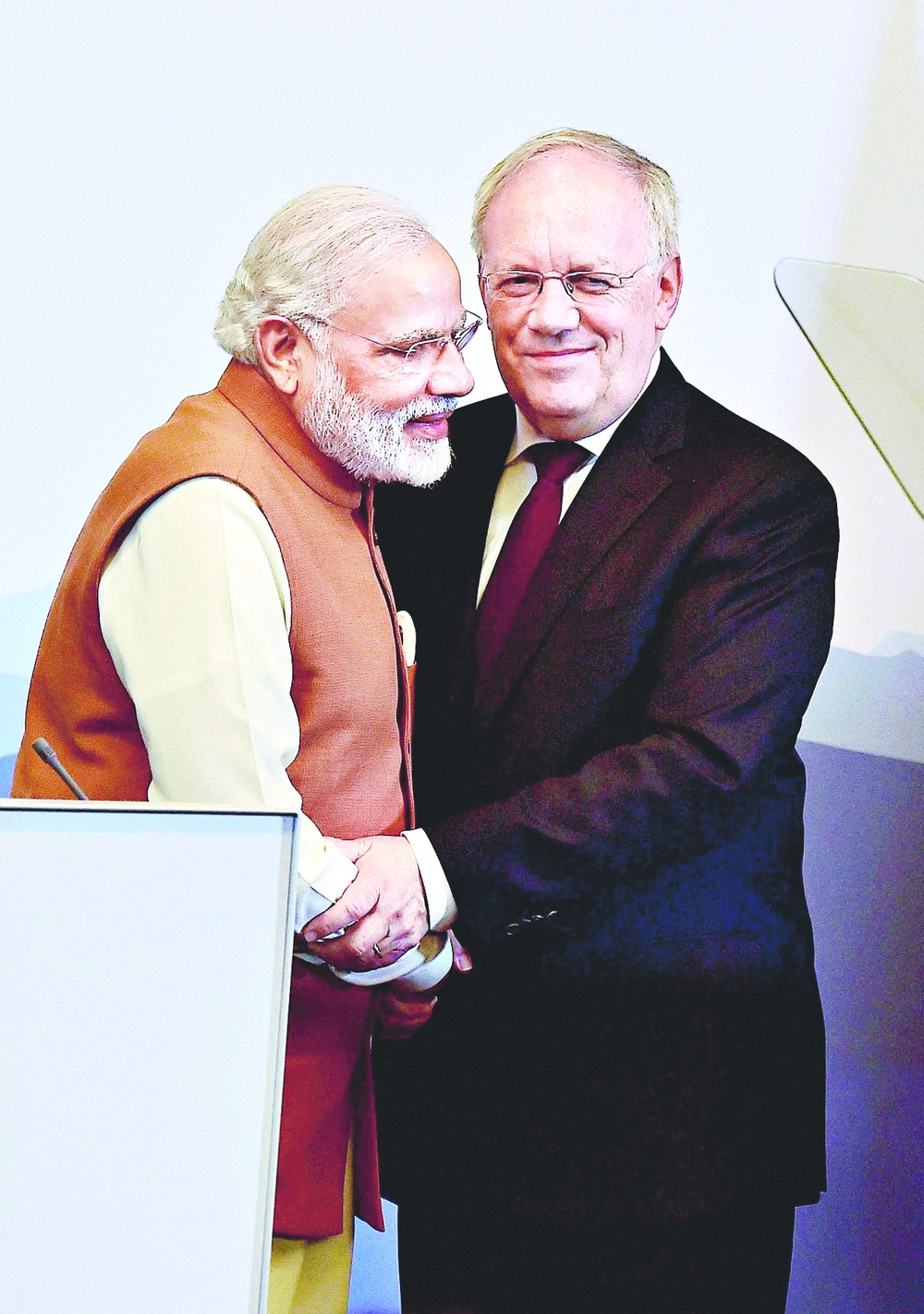
New Delhi, Sept. 6: Prime Minister Narendra Modi today backed Myanmar's battle against "extremist violence" without referring to the Rohingya refugee crisis, courting the Aung San Suu Kyi government amid Indian worries over China's growing clout there.
Modi announced free visas for Myanmar nationals keen to visit India, standing next to Suu Kyi - the country's State Counsellor and de-facto leader - in Nay Pyi Taw, at a time his administration has declared plans to deport 40,000 illegal Rohingya refugees currently in India.
Modi's visit to Myanmar, a security partner to counter insurgents in the Northeast and a crucial connecting link to Southeast Asia, follows what senior officials have said was growing anxiety in New Delhi over a perceived tilt by Suu Kyi towards China.
For several years now, India has steered clear of supporting the West's vocal criticism of human rights abuses in Myanmar - both under Modi and earlier, when the Congress was in power, and equally when the military junta ruled in the neighbouring nation and under Suu Kyi.
But Modi's choice of empathy for Suu Kyi today and his silence on the unfolding humanitarian crisis stand out even against that track record because of the urgency with which his government had announced plans to deport Rohingya refugees ahead of his visit. His words earned him gratitude from Suu Kyi.
Tens of thousands of Rohingya Muslims have fled Myanmar's Rakhine province following clashes with Buddhists and counter-terrorism operations by Myanmar's security forces. The refugees have moved into Bangladesh, India and Indonesia.
In Rakhine province, militants claiming to represent the Rohingya community have also launched increasingly aggressive attacks on Myanmar's security forces - including a clash late last month, in which multiple security personnel were killed.
"We fully understand the challenges you are going through," Modi said, praising Suu Kyi's "brave leadership" of Myanmar's peace process. "We share your concerns on the extremist violence in Rakhine province and especially the death of security personnel and the loss of innocent lives."
Modi landed in Nay Pyi Taw, Myanmar's capital, on Tuesday evening, and met the country's President Htin Kyaw, who enjoys a largely ceremonial position in the current administration.
Today, he met Suu Kyi - who effectively heads the government though she can't legally because of a constitutional provision - for talks that were critical for India to try and reassert New Delhi's commitment to the relationship, officials said.
Though both Suu Kyi and Htin Kyaw have visited India since their government came to power in Myanmar early last year, Modi - who has made India's neighbourhood his diplomatic priority - had till now only visited the country for a multilateral summit. The Prime Minister had in the meantime visited every other neighbour - except the politically unstable Maldives - for bilateral meetings.
Suu Kyi has visited China twice since she took office and has publicly spoken of her camaraderie with Chinese President Xi Jinping, whose government has lavished loans and investments on Myanmar. China wields influence with several of the militant groups that Suu Kyi has tried to bring to a dialogue with the government - giving it leverage in Myanmar's peace process that India can't match.
India too has invested heavily in connectivity projects through Myanmar - such as the Kaladan multi-modal project that involves developing a port, an inland waterways terminal and a road. India is building a trilateral highway passing through Myanmar to Thailand - which the three nations hope to then extend to Laos, Cambodia and Vietnam. But India's familiar Achilles heel - a delay in delivering on promises - has hurt its efforts in Myanmar too.
On Wednesday, Modi tried to demonstrate his thoughtfulness to Suu Kyi, gifting the Myanmar leader a copy of a research proposal she had submitted to the Indian Institute of Advanced Studies in Shimla in 1986, when she was a student.
India has in the past helped provide humanitarian assistance in refugee camps set up in Rakhine province following earlier clashes - always carefully ensuring that its aid reached both the Buddhist and Rohingya Muslim communities.
Today, Modi focused on the need for the two countries to cooperate more deeply in securing their long and porous border - an emphasis Suu Kyi shared when she spoke. The Myanmar leader thanked Modi for his support against the "terror threat" her country faces.
The Prime Minister announced gratis visas for all Myanmar nationals keen to visit India. Then, he declared that some Myanmar nationals would be returning to their homeland from India.
He wasn't talking of Rohingya refugees - but of 40 Myanmar prisoners who are currently in Indian jails and who Modi's government has decided to release as a goodwill gesture. "We hope they will soon be reunited with their families in Myanmar," Modi said.











